You want a stroller that handles uneven paths, beach days and busy holiday outings without slowing you down. Choosing the right off-road stroller helps you keep your routine, stay active and carry everything you need — so you can focus on time with your family and make outings easier and more enjoyable during the holidays.
Top Picks
| Category | Product | Score |
|---|---|---|
| 🏆 Best Overall | Jeep Deluxe Wrangler Stroller Wagon with Cooler Bag and Parent Organizer | 96/100 |
| 💰 Best Value | Baby Trend Expedition® Jogger, Dash Black — Check price on Amazon | 88/100 |
| ⚡ Best Performance (Runners) | Jeep Classic Jogging Stroller by Delta Children — Check price on Amazon | 92/100 |
| 🎯 Best for Growing Families (Double) | Baby Trend Expedition Double Jogger Stroller, Griffin — Check price on Amazon | 90/100 |
| 🚀 Best Lightweight All-Terrain Option | Delta Children Apollo Jogging Stroller – Black — Check price on Amazon | 89/100 |
How We Picked These Off-Road Strollers
You need a stroller that suits your terrain and lifestyle. We focused on stability and safety (5-point harnesses, lockable front wheels, strong frames), terrain capability (large, pneumatic or EVA tires; suspension), ease of use (how the stroller folds, whether wheels are quick-release, weight), storage and parent conveniences (cup holders, trays, large baskets), car-seat compatibility for travel-system flexibility, and real-world user feedback so you know how each model performs on gravel, grass, sand and pavement.
Price and value were balanced so you can find options that save you time and reduce holiday stress.
Baby Trend Expedition Jogger
If you want a dependable all-terrain jogger that won’t make your daily outings feel like a workout, this one is worth a look. You can take it on morning runs, weekend hikes, or just cruising through holiday markets — the lockable front wheel gives you in-line stability for running and you can unlock it for easier turning when you’re weaving through crowds. There’s a parent tray with cup holders, a child tray with cup holders, a roomy under-seat basket and a multi-position reclining seat, so it’s practical for errands, naps on the go and travel with an infant car seat.
It folds down fairly compact, grips well with the ergonomically shaped handle, and the all-terrain tires smooth out bumpy sidewalks and gravel. If you want something functional and low-fuss for both everyday life and busier holiday outings, this stroller covers a lot of ground.
What People Say
People mention it rides surprisingly smooth over gravel and sidewalks, is easy to steer, and the lockable front wheel makes running straightforward. Reviewers also appreciate the storage, cup holders and that kids nap comfortably in the reclined seat.
Overall Sentiment: Positive

🗣️ Katie
I’m a serious distance runner currently training for my 3rd marathon. My 20 month old is very comfortable reclined on walks or runs, and the front wheel locks for running or unlocks for easier turning. Feels lightweight to push and handles bumps well.
🗣️ Rachel
Drives and rides very smooth on bumpy gravel, grass and sidewalks. Comes with cup holders, basket and a tray for snacks, turns tight corners smoothly and works great as a jogger or walking stroller.
Long-Term Cost Benefits
Because it handles multiple uses — running, everyday walks, travel-system compatibility and decent durability — you’re less likely to buy extra specialty strollers. The combination of solid tires, a robust frame and features you actually use means it can last through different stages and activities.
Return on Investment
You get practical value from everyday convenience: a stroller that’s useful for workouts, errands and travel. If you prioritize versatility and durability over premium brand frills, it tends to deliver reliable performance that pays off over time.
Situational Benefits
| Situation | How It Helps |
|---|---|
| Running or jogging | Lock the front wheel for stable, straight tracking so you can keep pace without constant corrections. |
| Holiday markets or crowded sidewalks | Unlock the front wheel for tighter turns and nimble maneuvering through crowds. |
| Gravel paths or park trails | All-terrain tires and smooth suspension help reduce jostling so your child stays comfortable. |
| Errand days | Multiple cup holders, a covered parent compartment and a large under-seat basket keep your hands free and essentials close. |
Versatility
Works for running, everyday walks, and as a travel system with compatible infant car seats. The reclining seat and storage make it useful from infant-to-toddler stages.
Safety Features
Five-point harness, adjustable straps with quick-release buckle, tether strap and footrest reflectors for low-light visibility. Lockable front swivel wheel improves stability when needed.
Comfort
Padded, multi-position reclining seat and extra-wide rubber handle for comfortable pushing. Reviewers note children sleep well during rides.
Travel Friendliness
Folds with an effortless trigger to a compact unit for car storage and has a parent tray for essentials. Wheels can be removed with a click for tighter packing if needed.
Child Friendliness
Child’s tray with two cup holders, adjustable canopy with sunroof panel, and a roomy seat that reclines for naps — designed to keep kids comfortable and fed on the go.
Key Benefits
- Lockable front wheel for stable running or swivel for maneuvering
- All-terrain bicycle-style tires smooth out rough surfaces
- Multiple cup holders and large storage basket for errands
- Multi-position reclining seat with 5-point harness for naps and safety
- Effortless trigger fold for compact storage
Rating: 4.6 (total: 154+)
Jeep Classic Jogging Stroller
If you want a rugged stroller that actually makes outdoor life easier, this one’s a solid pick. You can take it to the beach, trot down gravel trails, cruise holiday markets or use it as a travel system with a compatible infant car seat.
The visible shock absorbers and large rubber tires smooth out bumps, the UPF 50+ canopy helps keep little ones protected, and the seat reclines for naps. It’s built tough, folds for transport and has quick-release rear wheels when you need to stash it in the car. Heads-up: it’s on the heavier side, so if you’re lifting it in and out of your trunk every day you’ll notice that trade-off, but if you want something made for real outdoor use and holiday adventures, you’ll appreciate how well it handles rough ground.
What People Say
Owners highlight how well it handles sand, gravel and rough paths — kids ride comfortably and the suspension makes a noticeable difference. Common notes: it’s sturdy and feels safe, but heavier and less compact than city-focused strollers, and the cup holders and canopy coverage are smaller than some expect.
Overall Sentiment: Positive

🗣️ Oliver Moore
We were looking for a stroller for the beach, and this one was it. Smooth ride with the bigger tires, easy to clip the baby in. Easy to pop up and down and can store it. Very well built and safe. Rolls over any type of ground well.
🗣️ Natalie D.
Four months in I still love this stroller. It can go through almost anything — rough terrain on our land and my son isn’t all shaken up. It reclines far back, the tray is a good size and comes off for easy cleaning. It’s very heavy and the cup holders are small, but overall it does the job I needed it to.
Long-Term Cost Benefits
Because it’s built for rough use and doubles as a travel-system stroller, you’re likely to skip buying a separate specialty off-road stroller and a separate travel stroller. Durable tires, a strong frame and practical features reduce the chance you’ll upgrade quickly as your needs change.
Return on Investment
If your lifestyle involves trails, beaches or lots of outdoor play, you get a lot of practical value — reliable handling, car-seat compatibility and features you actually use. The heavier build is a trade-off for durability, but for active families that pays off.
Situational Benefits
| Situation | How It Helps |
|---|---|
| Beaches and sandy areas | Large rubber tires and suspension let you roll over sand with less effort and keep rides comfortable for your child. |
| Gravel paths and trails | Shock absorbers and big back wheels reduce jostling so naps and longer walks are easier to manage. |
| Holiday markets and crowded sidewalks | Swivel front wheel (with lock) helps you maneuver tight spaces or lock for steadier tracking when you want a straight push. |
| Road trips and car travel | Quick-release rear wheels and a foldable frame make it simpler to fit the stroller in a trunk, though the weight means you’ll want help lifting it. |
Versatility
Works as a true jogging/off-road stroller and as a travel system with compatible infant car seats. The reclining seat, storage and removable child tray make it useful from infancy (with a car seat) through toddlerhood.
Safety Features
Five-point harness with padded straps and reflective piping, safety tether for jogging and JPMA certification. The front wheel lock improves stability for running.
Comfort
Padded, multi-position reclining seat and visible shock absorbers help kids ride smoothly and nap on the go; reviewers frequently note kids seem comfortable even on rough terrain.
Travel Friendliness
Folds and has quick-release back wheels for easier packing. It’s heavier and bulkier than compact city strollers, so plan for the extra lift when loading into a car.
Child Friendliness
Extendable UPF 50+ canopy, removable child tray for snacks, roomy seat and a secure 5-point harness — practical for naps and outings, though canopy coverage and cup-holder size are sometimes called out as limited.
Key Benefits
- Large, all-terrain tires and shock-absorbing suspension for a smoother ride
- UPF 50+ extendable canopy to shield from sun and light rain
- Car-seat compatible travel system with quick-release back wheels for transport
- Multi-position reclining seat and 5-point harness with reflective piping
- Ample under-seat storage and removable child tray for snacks
Rating: 4.6 (total: 1789+)
Baby Trend Expedition Double Jogger
If you need a double stroller that can handle holiday crowds, uneven sidewalks and the occasional trail, this one’s a practical pick. You can push it with one hand, lock the front swivel wheel for jogging or unlock it for better maneuverability through markets, and the large bicycle-style tires smooth out bumps. Each seat reclines independently and has a 5-point harness, the parent tray keeps essentials close at hand, and it folds down to a compact shape for storage.
It’s not a lightweight city stroller, but if your plans include park walks, holiday shopping with two kids, or family runs, you’ll appreciate how reliably it rolls.
What People Say
Owners frequently call out how smoothly it rides over uneven ground, the independent recline for each seat, and the handy parent tray. People who use it for two toddlers like that it folds smaller than expected and has lots of under-seat storage, though the width and weight are noted by some buyers.
Overall Sentiment: Positive

🗣️ CeeLo
Assembly was straightforward and most of it arrives pre-assembled. The front wheel swivels for easy turns and locks when you want steadier tracking. The canopy locks in place, each seat reclines separately while the babies are still buckled, and the parent tray has a covered compartment for small items.
🗣️ V Hanline
Really glides — I could push it one-handed even with two kids of different weights. It handles uneven pavement, grass and gravel well, folds down small for my trunk (I removed the back wheels), and the under-seat storage fits grocery bags or extras for outings.
Long-Term Cost Benefits
Because it’s built to handle trails, sidewalks and errands, you may avoid buying a separate off-road stroller and a heavier specialty model. Durable tires, a sturdy frame and practical features like the storage basket and parent tray reduce the chance you’ll need frequent upgrades.
Return on Investment
If your season includes holidays spent outdoors — markets, park trips or family walks — the usability and durability pay off. It’s not the smallest stroller for daily lifts, but families who need a reliable double for varied terrain get good value from its features.
Situational Benefits
| Situation | How It Helps |
|---|---|
| Holiday markets and crowded sidewalks | Unlock the front swivel wheel for tight turns, then lock it when you want steadier tracking through busy stretches. |
| Uneven sidewalks, parks and gravel paths | Bicycle-style tires and a sturdy frame smooth out bumps so kids stay comfortable and naps are more likely. |
| Grocery runs and errands | Large under-seat storage fits bags and extras, so you can keep necessities with you without juggling them while you push. |
| Car trips and storage | Quick-release rear wheels and a compact fold let you make space in trunks that would otherwise be tight, though you may remove wheels to fit smaller cars. |
Versatility
Designed as a double jogger-style stroller for infants and toddlers, it’s useful for running, long walks and daily outings. Note: it’s not car-seat compatible as a travel system, so you’ll use it as a standalone double stroller.
Safety Features
Adjustable 5-point harnesses on both seats, lockable front swivel wheel for stable jogging, a jogging safety strap, and JPMA certification for peace of mind.
Comfort
Padded seats with multi-position recline, a ratcheting canopy with a peek-a-boo window, and large tires that reduce jostling help keep kids comfortable on longer outings.
Travel Friendliness
Folds into a compact unit and has quick-release wheels for storage, but it’s a heavier double stroller (frame weight listed at 32.18 Pounds), so expect some effort lifting it into a car.
Child Friendliness
Roomy seating for two, adjustable 5-point harnesses and a sun-blocking canopy with a peek-a-boo window make it practical for naps and day trips; seat fabric is wipe-clean polyester.
Key Benefits
- Large bicycle-style tires and lockable swivel front wheel for smoother all-terrain rolling
- Adjustable, ratcheting shade canopy with peek-a-boo window to manage sun exposure
- Individual multi-position recline and adjustable 5-point harnesses for each seat
- Convenient parent tray with two cup holders and a covered storage compartment
- Quick-release wheels and a compact fold for easier storage and transport
Rating: 4.6 (total: 5363+)
Delta Children Apollo Jogging Stroller
You want a tough stroller that won’t quit when holiday plans take you off the sidewalk, and this Apollo jogger fits that role. It has large 12″ front and 16″ rear wheels, a shock-absorbing aluminum frame and puncture-proof tires that help it roll smoothly over gravel, grass or packed snow. The seat reclines for naps, the extendable UPF 50+ canopy gives good coverage, and the included parent organizer with cup holders keeps your essentials within reach. It also accepts popular infant car seats with the adapter, and folds flat with quick-release rear wheels for easier packing.
If your season includes park walks, winter camping or running errands through busy markets, you’ll find it reliable and surprisingly practical for active family days.
What People Say
You’ll often see reviewers praise how smoothly it rolls over rough ground and how reliable the suspension and wheels are — many mention real-world use on grass, gravel, snow and hiking paths. People also appreciate the reclining seat and the compact fold for car trips.
Overall Sentiment: Positive

🗣️ Christine S
Easy & smooth to push around, love the all terrain wheels. Durable & sturdy stroller & the front wheel locks/unlocks for fast walks/running/jogging/off roading/hiking needs. Was able to pull stroller backwards through the snow while baby napped. Works well with a rain cover & bug net (not included).
🗣️ Maryanne
I am in love with this stroller. It has zero issues on grass, hills, bumpy or cracked sidewalks, dirt or gravel roads. Super smooth ride. Very easy to put together. The back of the stroller reclines so babies can lay back and take a nap. The stroller folds down really compact. We have a sedan and suv and it fits in both.
Long-Term Cost Benefits
Because it handles trails, sidewalks and holiday errands, you’re less likely to buy a separate specialty stroller. Durable wheels, a sturdy frame and car-seat compatibility mean it can carry you through multiple seasons and even a second child.
Return on Investment
If your holidays include outdoor markets, park visits or family hikes, the Apollo pays off by reducing jostled naps and keeping outings manageable. It’s not the lightest stroller for daily lifts, but the reliability and features give you practical value over time.
Situational Benefits
| Situation | How It Helps |
|---|---|
| Crowded holiday markets and narrow sidewalks | Unlock the front wheel for tighter maneuvering, then lock it for steadier tracking when you need control in busy stretches. |
| Snowy or muddy trails | Shock-absorbing frame and large puncture-proof wheels let you push through uneven, slippery surfaces without disturbing your child’s nap. |
| Running or brisk walks | Lockable front wheel and a safety tether give you confidence to jog while keeping the stroller stable. |
| Packing for a road trip or fitting in small trunks | Quick-release rear wheels and a flat fold let you make the stroller more compact for storage or car travel. |
Versatility
This is a true jogger-style stroller that works for daily walks, running and off-path adventures. It also doubles as a travel system with compatible car seats, so it grows with your needs rather than being limited to one use.
Safety Features
5-point harness with reflective piping, a jogging safety tether, lockable front wheel for stable tracking and JPMA certification provide multiple layers of safety for evening walks and active use.
Comfort
Padded seat with multi-position recline, extendable canopy and foam-adjustable handlebar keep both your child and you comfortable on longer outings and bumpy routes.
Travel Friendliness
Folds flat and has quick-release back wheels for easier trunk packing; it’s heavier than a lightweight city stroller, so expect some effort lifting it into cars, but it fits sedans and SUVs when folded or with wheels removed.
Child Friendliness
Roomy seat with reclining positions, UPF-protective canopy and a removable child tray make it good for naps, snacks and curious toddlers who want to look around.
Key Benefits
- Large puncture-proof wheels and shock-absorbing frame for a smooth all-terrain ride
- Extendable water-resistant canopy with UPF 50+ and peek-a-boo window for sun protection
- Reclining seat with multiple positions so naps happen on the go
- Parent organizer with two cup holders plus an extra-large under-seat basket for essentials
- Car seat compatibility with included adapter and a flat compact fold with quick-release wheels
- 5-point harness with reflective piping and a jogging safety tether for added peace of mind
Rating: 4.6 (total: 285+)
Jeep Deluxe Wrangler Stroller Wagon
You’re getting a hybrid wagon-stroller that actually makes weekend plans easier. It converts between car seat mode, stroller mode and a roomy wagon, so you can use it for a baby with an infant car seat or for older kids who still want to be hauled around. The removable UV-blocking canopy and roll-down shades help keep naps intact while the airless, all-terrain tires and swivel front wheels make grass, sand and bumpy sidewalks manageable. There’s tons of storage — a detachable cooler bag, parent organizer, cup holder and extra pockets — so you can pack snacks and holiday essentials without lugging an extra bag.
It folds up compactly and the back wheels pop off for tighter storage, though it’s on the heavier side. If your holidays mean beach days, crowded markets or long park visits, this wagon is a practical pick that handles a lot of real-world family needs.
What People Say
Reviewers repeatedly call out the roomy design, sun-protecting canopy, abundant pockets and sturdy wheels — real-world parents say it handles grass, sand and long days out without fuss.
Overall Sentiment: Positive

🗣️ Melanie H
Easy to fold, easy to maneuver around. My kid hates strollers but LOVES his wagon. He sat in it for a couple hours while we rolled around an RV show. Lots of pockets, the canopy is great for outdoors. The big wheels roll well through grass and bumpy terrain.
🗣️ Audrey
Love the canopy and roll-down sun shades for good sun protection and the netting for airflow and bug protection. Pockets are a game changer — you barely need a diaper bag. Material is easy to clean and the solid wheels mean no flat tires. Cooler bag is surprisingly useful for snacks.
Long-Term Cost Benefits
Because it combines car seat compatibility, stroller seats and a wagon frame, you may avoid buying separate specialty gear. Durable tires and a metal frame mean it can handle multiple kids and seasons, so it tends to hold value across growing family needs.
Return on Investment
If your holidays include beaches, farmers markets or crowded events, this wagon saves time and hassle by carrying kids and gear in one trip. It’s heavier to lift but the real-world convenience tends to pay off in fewer extra errands and less juggling.
Situational Benefits
| Situation | How It Helps |
|---|---|
| Crowded holiday markets and busy sidewalks | Swivel front wheels and adjustable handlebars let you push or pull through tight spots while keeping kids contained. |
| Beach days or sandy parks | All-terrain, puncture-proof tires roll through sand better than small stroller wheels and won’t go flat. |
| Long outings with naps | UV-blocking canopy, roll-down shades and side netting create a shaded, ventilated space so naps happen on the go. |
| Farmers market runs or hauling gear | Wagon mode plus large storage pockets and a detachable cooler bag keep groceries and snacks organized while you tow everything in one trip. |
Versatility
This isn’t just for playdates — it’s a multi-use travel system. Use it with an infant car seat, as a two-seat stroller for toddlers, or remove the canopy and haul gear. It adapts as your family’s needs change.
Safety Features
Two 5-point harness seats, a one-step on/off parking brake, sturdy metal frame and included car seat adapter provide secure transport and easy stopping on slopes or crowded spots.
Comfort
Removable, UV-blocking canopy with roll-down shades, mesh side panels for airflow, and roomy seating help kids stay comfortable for naps and long rides.
Travel Friendliness
It folds with an auto-lock latch and has quick-release rear wheels so it can fit tighter spaces, but at 46.6 lb it’s heavier than typical single strollers — plan for extra effort lifting it into trunks or up steps.
Child Friendliness
Roomy seats with 5-point harnesses, high sun protection and a low step-in height make it great for toddlers and older kids; it supports up to 110 lb total so siblings can ride together comfortably.
Key Benefits
- Three ride modes: car seat adapter, two-seat stroller mode and open wagon for hauling kids or gear
- All-terrain puncture-proof airless tires and swivel front wheels for easier steering over grass, sand and sidewalks
- Removable UV-blocking canopy with roll-down shades and side netting for naps, sun protection and airflow
- Detachable cooler bag, parent organizer, cup holder and multiple pockets for hands-free outings
- Compact fold with quick-release back wheels for storage and transport once you remove the bulk of the wheels
- Holds up to 110 lb total so it works for siblings, toddlers and even hauling your market haul
Rating: 4.7 (total: 2,180+)
FAQ
How Do I Choose The Right Off-Road Stroller For Holiday Adventures?
You should match the stroller to the way you plan to use it: choose a three-wheel jogging stroller with lockable front wheel and suspension if you’ll be running or tackling trails, pick a double jogger if you need two seats, or opt for a wagon-style model when you want maximum capacity and easy boarding for older kids. Look for practical features like a multi-position recline, a sturdy 5-point harness, a large canopy, roomy storage and easy-folding design, and check car-seat compatibility if you want a travel system. Don’t forget to factor in weight and folded dimensions — measure your trunk and doorways before you buy and measure your car and doorways so the stroller actually fits your vehicle and storage space.
Are Off-Road Strollers Safe And Easy To Use In Winter Or Crowded Holiday Settings?
Yes, when you use them properly: always secure your child with the 5-point harness, lock the front wheel for stable jogging and unlock it for tight turns in crowded areas, and use the wrist safety strap when running. Be mindful that larger off-road models and wagons are heavier and can be harder to steer or lift into a car, so you’ll want to practice folding and removing quick-release wheels at home; also avoid overloading the basket because shifting weight can affect stability.
Add reflective gear or lights for early dusk or evening outings, keep the canopy and weather covers handy for snow or wind, and remember use the five-point harness and hand strap for the best safety.
How Do I Maintain And Pack An Off-Road Stroller For Holiday Travel?
You should clean and inspect the stroller before trips: wipe down fabrics, clear sand and salt from the wheels and frame, tighten knobs and bolts, and lubricate moving parts as recommended by the manufacturer. If the model has pneumatic tires check pressure; if it has airless or puncture-proof tires simply rinse and remove debris.
Practice folding and unfolding at home and test fit the stroller in your vehicle with wheels on and with wheels removed so you know what to expect at the airport or before holiday drives, and bring a small repair kit or replacement parts and a washable seat liner to make on-the-go fixes and cleanups easier. Practice folding and fitting the stroller into your car well before travel to avoid last-minute hassles.
What Shoppers Prefer
When choosing between the Baby Trend Expedition Jogger, Jeep Classic Jogging Stroller, and Baby Trend Expedition Double Jogger, you typically prioritize rugged wheels and suspension for smooth off-road rides, roomy comfortable seats and a sturdy frame, and whether you actually need a single or double setup. You also care about easy folding and maneuverability, lightweight portability and storage, secure harnesses and reliable brakes, and getting solid value for the price.
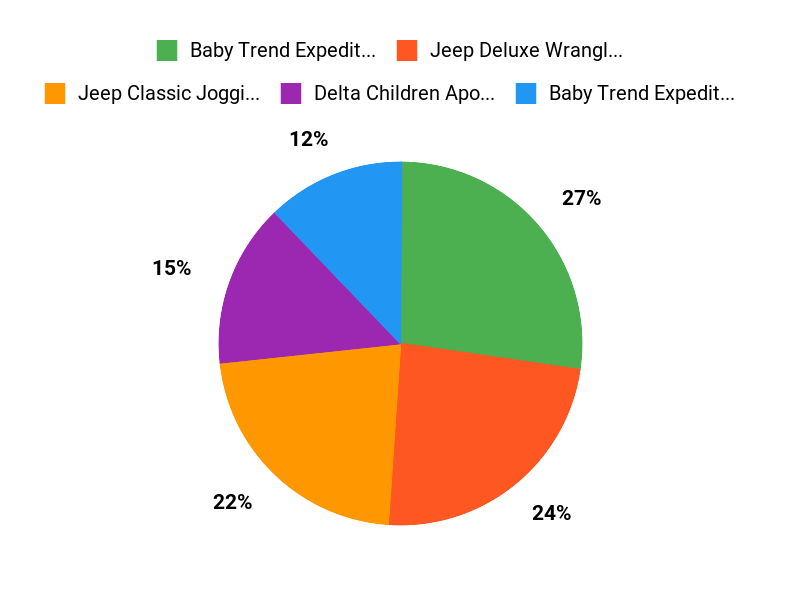
Wrapping Up
This season you can keep plans moving smoothly by choosing an off-road stroller that fits how you travel and where you go. The Jeep Deluxe Wrangler Wagon is the most versatile if you want capacity and features, while the Baby Trend Expedition jogger gives you strong basics at a low price. The Jeep Classic and Apollo models are better if you plan to run or tackle rough trails, and the double Baby Trend is the practical choice for siblings.
Pick the stroller that matches the terrain you use most and your storage needs — choose the stroller that matches the terrain and family needs so holiday outings feel easier and more enjoyable.
| Product | Image | Rating | Weight Capacity | Weight | Dimensions |
|---|---|---|---|---|---|
| Baby Trend Expedition® Jogger, Dash Black |
 |
4.6/5 (154 reviews) | 50 Pounds | 23.59 Pounds | 24″L x 47″W x 42.5″H |
| Jeep Classic Jogging Stroller by Delta Children, Grey |
 |
4.6/5 (1,789 reviews) | 50 Pounds | 29 Pounds | 44.9″L x 24.4″W x 41.1″H |
| Baby Trend Expedition Double Jogger Stroller, Griffin |
 |
4.6/5 (5,363 reviews) | 50 Pounds per seat | 32.18 Pounds | 46″L x 31.5″W x 42″H |
| Delta Children Apollo Jogging Stroller |
 |
4.6/5 | 50 Pounds | 30.57 Pounds | 44.9″L x 24.4″W x 41.1″H |
| Jeep Deluxe Wrangler Stroller Wagon |
 |
4.7/5 (2,180 reviews) | 110 Pounds | 46.6 Pounds | 46″D x 29″W x 46″H |
This Roundup is reader-supported. When you click through links we may earn a referral commission on qualifying purchases.





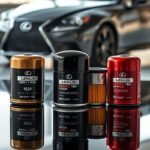
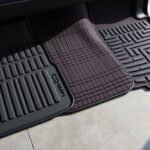
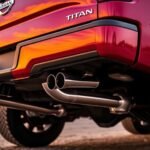
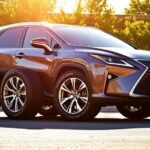

Leave a Reply